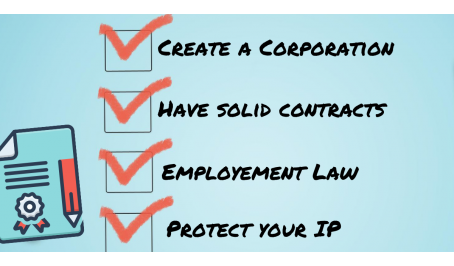- Membership
- The NY Chapter
- Our Career Services
- Committees
- National FACC Network
Legal Checklist for Expanding Business to the U.S: Have Solid Contracts
Member news | August 17, 2020
The FACC-NY network is composed of a diverse mosaic of talented, experienced, and open-hearted professionals united by a desire to share their knowledge, nurture meaningful connections, and succeed professionally. In this #MemberInsights blog, we invite a guest member to contribute timely and relevant tips and insight for adapting your activities to overcome immediate challenges and plan for the long-term.
By FACC-NY Member Stephanie Messas
Stephanie is Partner of The Messas Law Practice and helps foreign companies develop and thrive in the U.S. by creating corporate structures and identifying diverse legal issues related to corporate governance, intellectual property, and employment.
This is Stephanie's second article as part of her Legal Checklist for Expanding to the U.S series to help our members gain legal insight for successfully expanding their businesses to the U.S.
2. Have Solid Contracts ✓
- What not to do.
US contracts, i.e., US contracts that not only comply with US law but are in a US format, are a powerful tool that shields your entity from liability and provides you with the weight of credibility vis-a-vis your business partners. In many ways, a contract is a reflection of a company’s operational efficiency and reliability. As mentioned in Part 1 of this series, it is much more cost-effective in the US to strategize to avoid problems, materialized in solid contracts, then to fix errors made as a result of lack of a contract and/or a poorly drafted one. Do not copy and paste from various online websites, do not “Americanize” a European contract. Invest in your contractual foundation.
- What a contract should do for you.
A contract serves to generate revenue and to protect your entity. Indeed, a solid agreement should set forth the commitments and obligations of all parties to it. Not only do you have a clear roadmap of the parties’ expectations, but also procedures to solidify healthy business relationships and solutions when such relationships do not flourish as planned. More importantly, the contract provides avenues to prevent conflicts and mitigate them when they arise. The type of contracts and clauses will obviously differ depending on the business’s needs, but one constant is that the business’s strategy and goals should be as clear as means to get out of the contract.
- Post-COVID necessities.
Businesses have been turning to force majeure clauses in their contracts for protection in light of the COVID-19 pandemic. Force majeure clauses are contractual clauses which alter parties' obligations and/or liabilities when an extraordinary event or circumstance beyond the parties’ control prevents one or all of them from fulfilling those obligations. Indeed, vamping up these clauses can be helpful, but it is insufficient. Parties should think about what obligations must be fulfilled in person, alternatives to in-person obligations, if any, solutions in cases of quarantine, and possible extensions to performance dates.
Stay tuned for the next article release as part of this series for your questions answered on protecting your IP and employment law.
Interested in connecting with Stephanie and expanding upon these questions? Log into the FACC Member Directory to send her a message.

